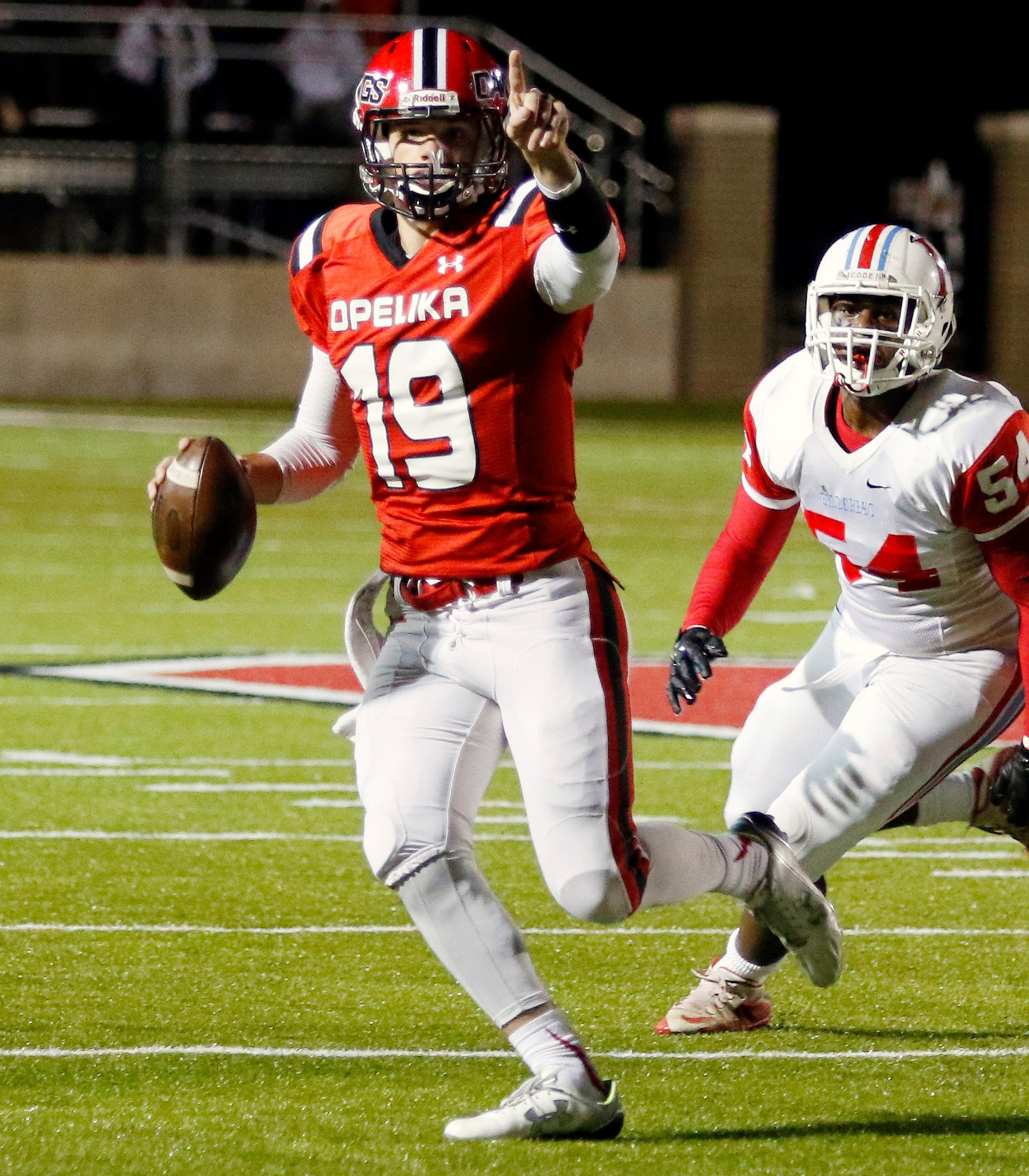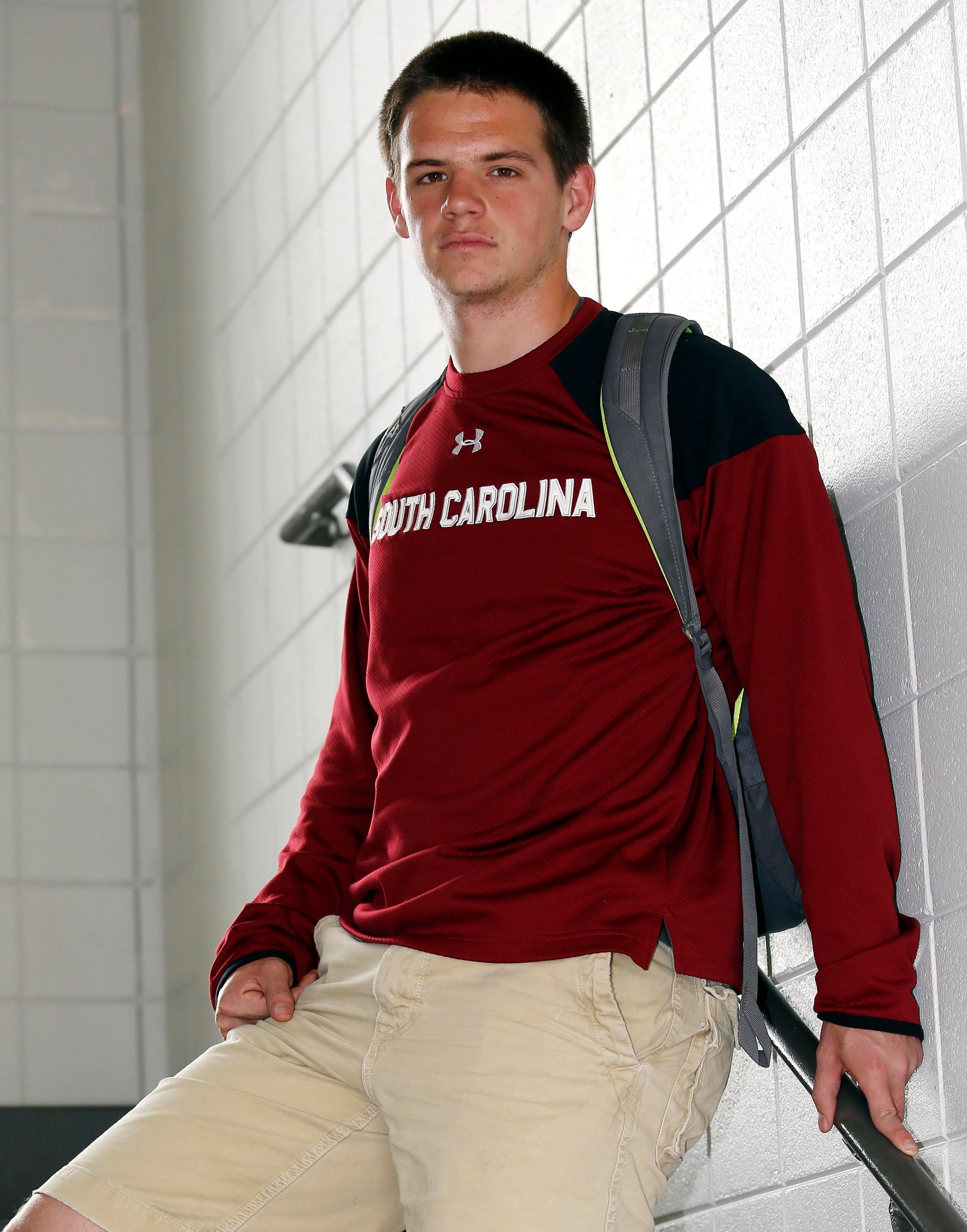Fast track: Early enrollment now common in college football
In January 2007, mega-recruit Jimmy Clausen enrolled at Notre Dame, bypassing a final semester of high school to partake in spring practice with the Fighting Irish and get a jump on becoming the starting quarterback.
Early enrollment was a rarity in college football at the time. Almost a decade later, it’s commonplace.
All but four teams in the Power Five conferences have at least one member of the 2016 freshman class already enrolled and practicing, a total of more than 250 players. West Virginia, North Carolina State and Florida have the most freshmen early enrolled this year with nine each.
Now a highly touted quarterback recruit from Alabama is taking early enrollment a step further. Jake Bentley announced this week he will skip his senior year of high school altogether and enroll at the University of South Carolina this summer.
While players who have enrolled early say it increased their ability to play as freshmen and gave them a head start on earning credits toward graduation, some in college sports wonder, what’s the rush?
“I don’t think there’s any way that it’s in the best interest of quality preparation for college to go early,” said Big 12 Commissioner Bob Bowlsby, head of the NCAA’s football oversight committee. “I think it’s also fair to assert that not all of the kids that are doing this are excellent students. Just the fact that they were able to get out of high school early doesn’t make them necessarily ready for college.”
At first, most early enrollees were quarterbacks. No position requires more mental preparation.
Clemson star DeShaun Watson got on the fast track after his sophomore year of high school, with the encouragement of then-Tigers offensive coordinator Chad Morris.
Watson had to give up a final season of high school basketball but knew football was his future.
“I missed my friends, my last semester of high school and all the memories, but this was a once-in-a-lifetime opportunity,” he said. “I wanted to play as a freshman.” Watson was Clemson’s starter by game four of his freshman season. Only injuries held him back after that.
Watson, from Gainesville, Georgia, about 90 miles from Clemson, South Carolina, attended prom and graduation, and every other weekend went home to watch the basketball team play during that first college semester.
“Coach (Dabo) Swinney does a great job,” Watson said. “He let all the mid-year guys go back and experience that.”
Arizona coach Rich Rodriguez said he doesn’t recruit players with early enrollment in mind, but “I don’t see anything wrong with it.”
“It’s obviously a boost for the colleges,” Rodriguez said. “They get a player and get him acclimated to the college system. We like it, but we leave it up to (the players).”
He said the greatest benefits to players enrolling early come in the weight room.
“Being with 100 football players and lifting in that competitive environment accelerates the maturation process,” Rodriguez said.
Watson said he went from 181 pounds when he got to Clemson to near 200 by the start of his freshman season.
Pittsburgh coach Pat Narduzzi will work with players interested in early enrollment, but he isn’t as positive about the trend.
“There’s no reason to push the envelope on this,” Narduzzi said. “You just finished your senior year, you’re just starting to wind down and finish the last half of your senior year, whether it’s playing another sport or enjoying the prom, just really enjoying being a high school student for one half year.”
Early enrollment is not just for quarterbacks any more.
Tennessee coach Butch Jones used early enrollment to give his team a fast infusion of talent after going 5-7 in 2013, his first season in Knoxville. The Vols had 24 players enroll early from highly rated recruiting classes in 2014 and ‘15.
“A lot of times, just the growth in one semester is the equivalent of a redshirt year,” Jones said. “It’s really been beneficial for us in really flipping our roster and turning our football program around.”
Tight end Ethan Wolf, a three-sport athlete from Minster, Ohio, was part of Tennessee’s 2014 early enrollee class and started 11 games as a freshman.
“Being from a small town, there’s a lot of camaraderie on those teams. To have to leave your senior year of baseball and basketball is kind of a tough decision,” Wolf said. “But when I weighed the options of the situation — we needed a tight end — that this is a big-time opportunity that I needed to capitalize on, everything fell into place.”
Players who early enroll can count toward the previous year’s signing class, allowing a team to sign more than the NCAA limit of 28 in a year.
“It’s a creative way to manage your roster, but on the flip side of that, you’re always paying with a credit card, too,” new Rutgers coach and former Ohio State assistant Chris Ash said. “I don’t think you necessarily go out and say, I’m only going to recruit guys that are going to be mid-year (enrollees) because that pool shrinks pretty fast.”
Bentley’s situation drew national attention, but the circumstances are atypical.
Bentley first played high school ball for his father, Bobby, in Duncan, South Carolina. When Bobby Bentley got a job on Gus Malzahn’s staff at Auburn, the family moved to Alabama and Jake played the last two seasons at Opelika High School.
New South Carolina coach Will Muschamp hired Bobby Bentley as running backs coach this offseason. Instead of choosing a new high school in South Carolina or maybe staying behind to finish at Opelika, Jake Bentley decided to join his father — and compete for a starting quarterback job that is wide open.
Bowlsby said early enrollment is among the many issues the oversight committee will consider when it meets this month and takes a comprehensive look at recruiting.
“I wonder where it stops and when you might have the entire recruiting class starting in January?” Bowlsby said. “It’s a troubling trend that needs to be examined.”
More Articles to Read




